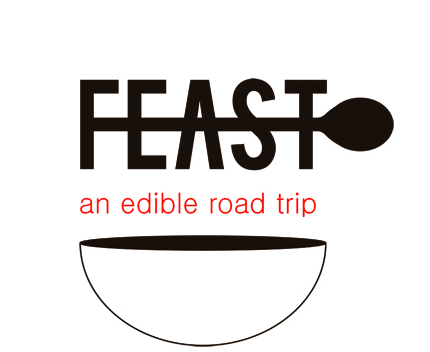Guess What, You Can Farm Here Too!
Farming is challenging, regardless of where you are. Growing food north of the 60th parallel, with shorter growing seasons and rocky terrain, brings new challenges. In and around Hay River, there is a lot of prime land, but it’s not all available; some is tied up in land claims and some is simply inaccessible due to infrastructure and lack of roads. Given these challenges, we were amazed again at the capacity for innovation, and the affect that a small group of individuals can have in creating a dynamic local food scene.
While in Hay River, we were fortunate to tour the city with Andrew Cassidy, town mayor, farmer, and Executive Director of the Northwest Territories Farmer’s Association. Andrew explained that the growing season in Hay River is not that much shorter than more southern regions, and they have the added benefit of more sunlight. Hay River is perched on a riverbed and thus has excellent mineral-rich soil, making agriculture in the region actually quite viable.
He mentioned that often, a bigger challenge in northern farming is finding the means to harvest and process the rapidly growing produce quickly, rather than the impending frosts.
There are a number of initiatives that Andrew finds promising; up until about 8 months ago, for example, all of the eggs in Hay River were shipped out of province to be graded and sold or turned into liquid egg. Now, there is an egg grading station, Polar Egg, in Hay River, which has made it legal for Hay River Eggs to be sold and consumed locally.
There is also a large plot of land that has been designated as a community garden. There is a community potato patch, a green house, about 40 large plots, and a ‘living fence’ made of up raspberry bushes. About 30 people garden in this community garden and there are plans for expansion in the coming years.
Hay River has its roots in fishing; the town’s farmers market started as a place for fish mongers to sell, and eventually developed into a collection of more diverse vendors, including bakers, craftspeople, farmers, and prepared food.
Andrew and his wife Helen are the main produce vendors there, and Andrew explained there is a very high demand for locally grown products. The demand is so great, in fact, that they can’t keep up.
Andrew and Helen often sell out, with long lines for their goods starting before the market even opens each Saturday morning.
While there is still a lot of work to be done, Andrew and many others in Hay River have managed to accomplish a great deal, and agriculture is especially exciting in Hay River because it is still being developed. The opportunity exists to create an agriculture system with sustainable, food security principles in mind, and we were both really excited to hear Andrew discuss the region’s potential for this.
-DV
